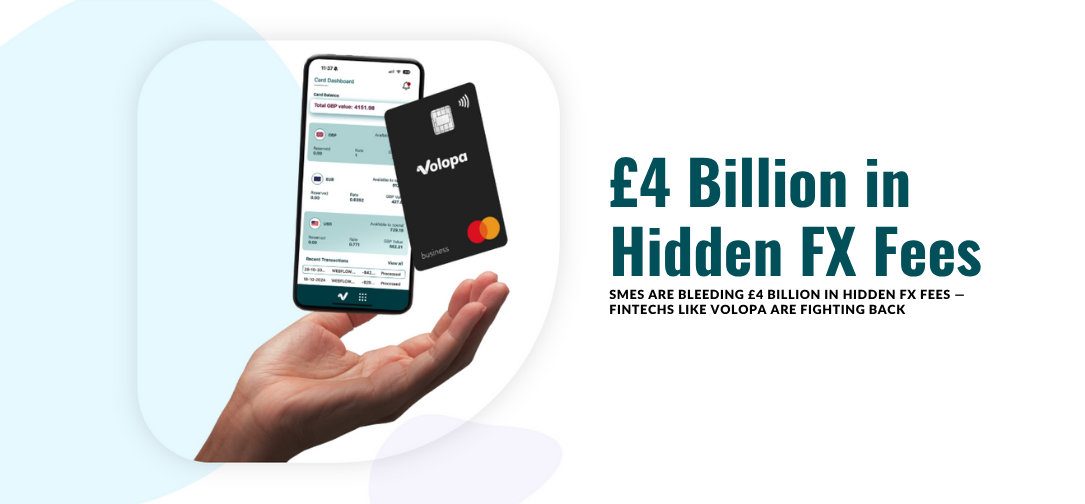SMEs are losing billions annually to hidden foreign exchange fees an overlooked cost that’s quietly draining up to 2% of annual revenue. As cross-border payments grow more crucial than ever, fintech challenger Volopa is expansion into the European Economic Area to offer SMEs a smarter, cheaper way to send and manage international payments.
The stakes couldn’t be higher. Cross-border payments are forecast to hit $250 trillion by 2027, according to Payments Cards and Mobile. Yet many business owners remain unaware of how much foreign exchange (FX) fees quietly erode their bottom line. For small- and medium-sized enterprises (SMEs), FX costs can drain 1–2% of annual revenue a hidden expense often overlooked because it’s buried within so-called “standard” bank rates (Float).
This presents a significant issue in the UK, where there are approximately 5.45 million SME businesses. With an average turnover of £3,549,627 per business, a 2% loss due to foreign exchange (FX) fees equates to nearly £71,000 annually (GOV.UK). While this may not seem substantial at first glance, it represents a meaningful loss especially when considered alongside the many other costs SMEs already face. It’s yet another area where businesses are seeing their margins eroded.
Despite the impact, many SMEs still accept their bank’s FX rates and transaction fees as an unavoidable cost of doing business. But the reality is stark: over half (52%) of businesses report struggling with high FX fees and uncompetitive exchange rates.
A 2019 study by Accountancy Age revealed that SMEs were being charged total FX spreads of up to 3.71%, including fixed fees. When scaled across the UK’s small business sector, these inefficiencies are costing SMEs an estimated £4 billion annually a figure that continues to rise as international trade grows.
For companies dealing with suppliers, partners, or clients abroad, reviewing FX strategy is no longer optional it’s essential to protecting profit and improving cash flow.
Amid this landscape, Volopa’s expansion into the European Economic Area (EEA) marks more than just market entry it reflects an industry-wide evolution.
Volopa’s platform enables growing businesses to manage everything from supplier payments to employee expenses in one place tailored for today’s multi-currency, multi-market economy.
Key features of the platform include:
- Dedicated European IBANs for every client, enabling efficient, localised transactions across the EU while improving reconciliation and compliance.
- Unified expense and supplier payment dashboards, reducing admin and giving finance teams better control over cross-border outflows.
- Support for 26 currencies and payments to 180 countries, eliminating the need for multiple bank relationships or costly third-party services.
“At Volopa, we believe in the transformative power of innovation. Our expansion into the EEA underscores our commitment to empowering businesses to thrive in an increasingly interconnected world. With Volopa as their trusted partner, businesses can unlock new horizons, seize untapped opportunities, and embark on a transformative journey towards growth and success,” said Graham Smith, Managing Director at Volopa.
While legacy banks continue to dominate global transfers, fintech solutions are gaining ground. As of recent years, non-bank providers handle a growing share of cross-border B2B payments at 8% according to FXCIntelligence. Demand is surging especially among startups, ecommerce firms, and professional services operating across multiple jurisdictions.
Volopa’s move into the EEA is not just about expanding a product it’s part of a broader trend where intelligent, API-driven platforms are replacing outdated banking rails. Fintechs that can merge compliance, cost-efficiency, and usability will define the next decade of cross-border finance.



































